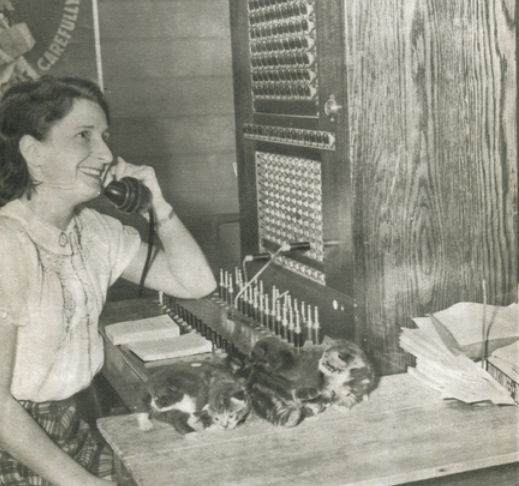Remember when summer meant freedom from school and the chance to earn some spending money? Back in the day, teenagers would pound the pavement in search of that perfect summer gig, often taking jobs that required actual human interaction and skills that didn’t involve a smartphone. Those first paychecks taught us the value of hard work and responsibility, lessons that have lasted a lifetime.
1. Video Store Clerk
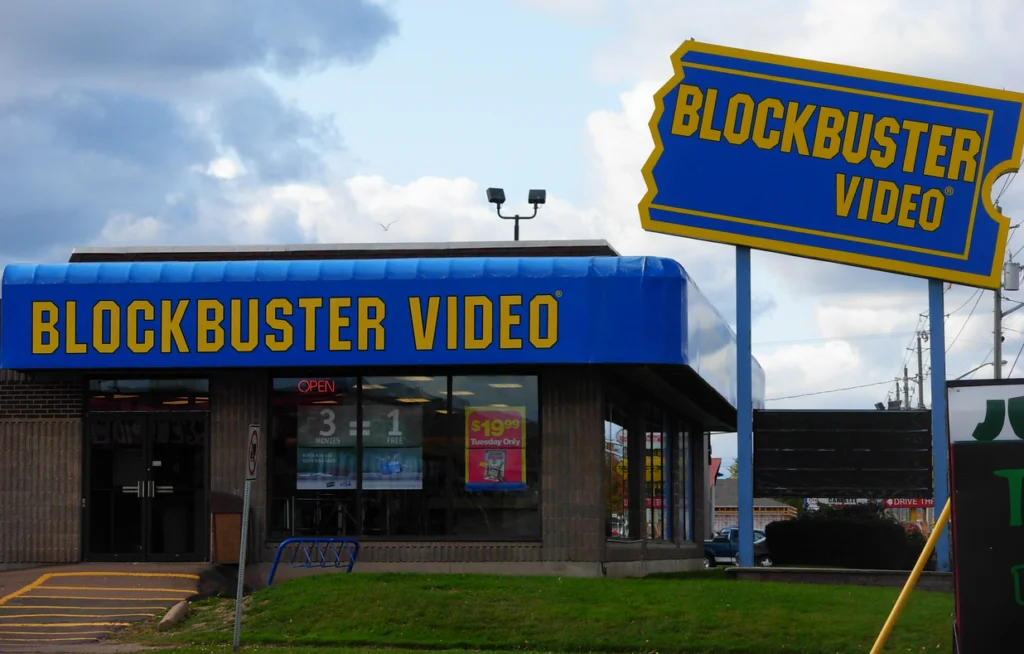
Before Netflix and streaming services took over our viewing habits, video rental stores dominated every strip mall in America. Teens would battle it out for coveted positions at Blockbuster or local mom-and-pop shops, where they’d get first dibs on new releases and flex their movie knowledge for customers seeking recommendations. These jobs came with serious social currency, as clerks could waive late fees for friends and had insider knowledge about which films were worth watching. WLKY explores if video rental stores could make a comeback, and if there’s a chance we may be witnessing one soon.
The Friday and Saturday night rush meant checking IDs for R-rated rentals, rewinding tapes that inconsiderate customers had neglected to rewind, and organizing returns on those iconic blue and yellow shelves. Many former video store clerks still reminisce about the satisfaction of categorizing films by genre, the distinctive smell of plastic VHS cases, and those heated debates with coworkers over which films deserved to be featured in the “Staff Picks” section. Those conversations about cinema helped shape the tastes of a generation long before online reviews and algorithms took over.
2. Telephone Switchboard Operator
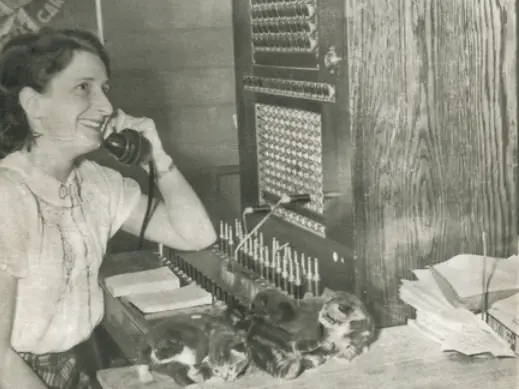
Once upon a time, when making a long-distance call required assistance, teenagers with clear speaking voices and good multitasking skills found summer employment connecting calls at telephone switchboards. Young operators would manage a complex array of cords and plugs, physically connecting callers while maintaining a professional demeanor during what could be hectic shifts. The position required remarkable patience, attention to detail, and the ability to stay calm when dealing with occasionally frustrated callers experiencing connection problems. For those interested, StateTech Magazine explores just how these switchboards worked and how they were key in connecting an entire country.
For many young women especially, these positions offered a respectable entry into the workforce and valuable technical training that few other jobs provided. Operators became the human interface of a rapidly expanding communication network, learning the quirks of different regions’ connection patterns and often serving as de facto customer service representatives. The satisfaction of successfully connecting someone to a loved one across the country gave these young workers a sense of importance that’s hard to replicate in today’s automated world.
3. Milk Delivery Assistant
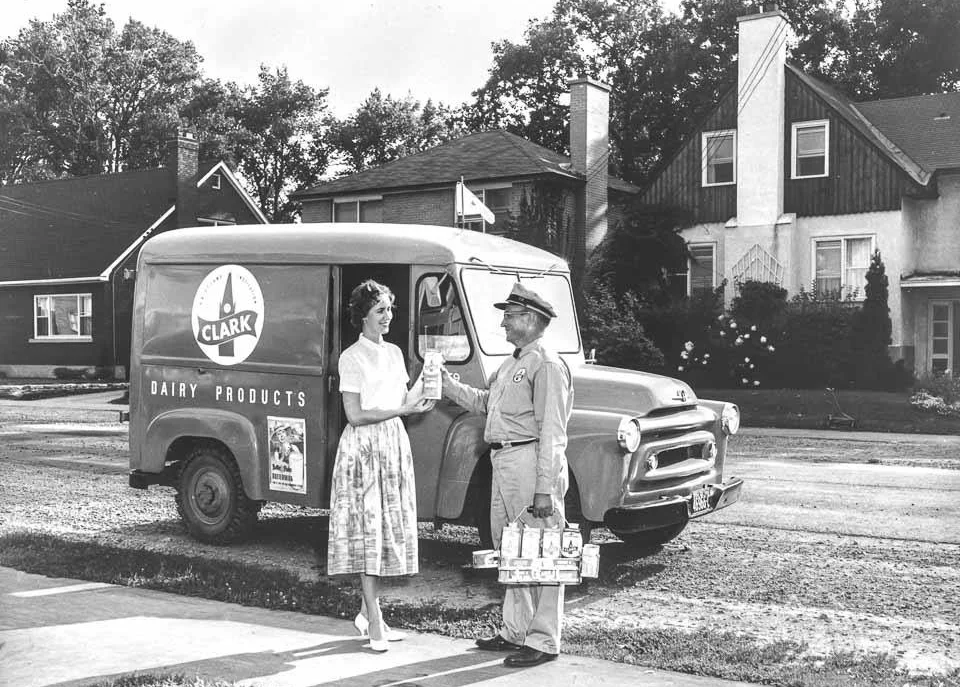
Long before 24-hour supermarkets and online grocery ordering, teenagers would rise before dawn to help deliver fresh milk to doorsteps across neighborhoods. These early-bird assistants would ride alongside delivery drivers, running bottles to porches while learning every street and household routine in their community. The physical nature of the work—carrying heavy crates in all weather conditions—built character and strength that parents heartily approved of. The Dairy Alliance tracks the history and unfortunate disappearance of this convenient, refreshing trend.
The job taught punctuality (no one wants spoiled milk sitting in summer heat) and customer relations as teens interacted with homemakers and collected payment envelopes. Many former delivery assistants recall the peaceful quiet of neighborhoods at daybreak, the satisfaction of completing routes before most people had even started their day, and the generous tips that often came during holiday seasons. By the time these young workers returned home, they’d already put in a full day’s work while their friends were still hitting the snooze button.
4. Bowling Alley Pin Setter
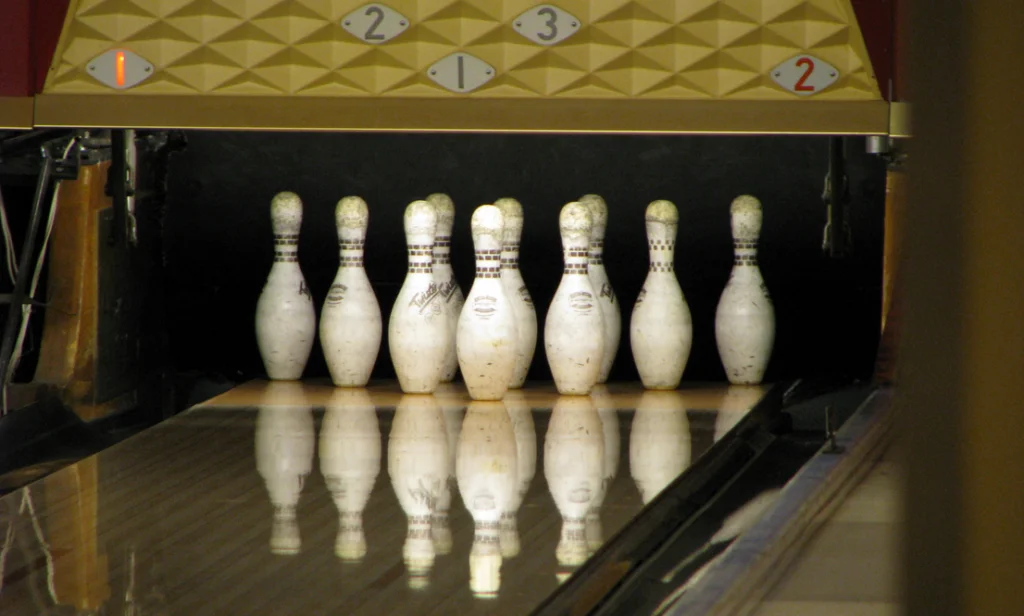
Before automated pin-setting machines became standard, nimble teenagers would scramble behind bowling lanes to manually reset pins between frames and return balls to players. This physically demanding job required quick reflexes, spatial awareness, and an ability to dodge errant bowling balls hurled by overzealous players. Young pin setters developed impressive coordination and timing, learning to anticipate the rhythm of different bowlers and adjusting their pace accordingly.
The position offered a unique vantage point to observe bowling techniques from champions and novices alike, with many setters developing their own skills through observation. Despite the occasional bruise and constant clamor of falling pins, these jobs provided solid wages and a camaraderie among the crew that made the work enjoyable. Many former pin setters fondly remember the tips they’d receive from grateful league bowlers and the satisfaction of perfectly arranging ten pins in their triangular formation with mechanical precision.
5. Drive-In Theater Attendant

Drive-in theaters were entertainment hotspots where teenagers could earn money while essentially getting paid to hang out at the coolest venue in town. Young attendants directed cars to optimal viewing spots, hung speakers on car windows, and maintained order during double features that stretched into the late-night hours. The job combined customer service with security responsibilities, as attendants had to ensure no one snuck in without paying or caused disturbances during the film.
The concession stand positions were particularly coveted, offering shelter from the elements and access to popcorn, candy, and soda during shifts. Veterans of these summer gigs still reminisce about watching the same movies dozens of times, the distinctive crackle of the radio transmission, and the stampede to the snack bar during intermission. Many former drive-in workers met future spouses during those magical summer nights, with romance blooming under the stars and glow of the massive outdoor screen.
6. Door-to-Door Encyclopedia Salesperson

In an era before Wikipedia and Google, teenagers with the gift of gab could earn substantial commissions selling encyclopedias to families concerned about their children’s education. Young sales representatives would memorize persuasive pitches about the value of having knowledge at one’s fingertips and practice demonstrations showing how these leather-bound volumes could help students excel in school. The work taught valuable lessons in persistence, as success often came only after numerous rejections and required developing thick skin and genuine belief in the product.
The job attracted ambitious young people who understood that selling was as much about listening as talking, with successful salespeople customizing their approach to each household’s specific educational concerns. Those who excelled discovered that doors literally opened when they projected confidence and genuine enthusiasm for the transformative power of information. Many former encyclopedia sales stars credit these summer jobs with developing communication skills that served them throughout their careers, along with the psychological insight that comes from hundreds of doorstep interactions.
7. Film Projectionist Assistant
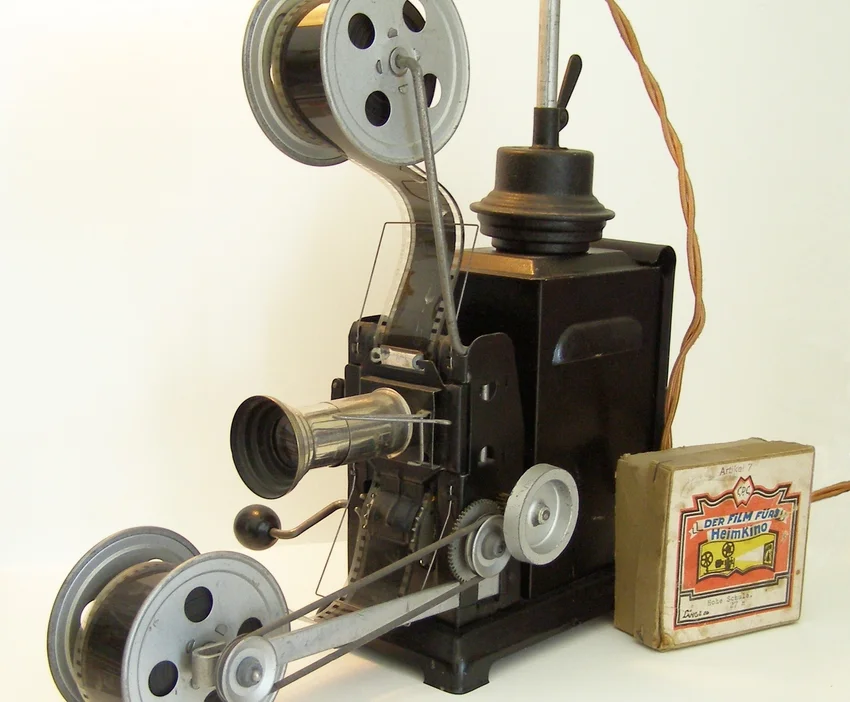
Movie theaters once employed teenagers to assist with the mechanical art of showing films, teaching them to handle delicate celluloid, thread projectors, and make seamless changeovers between reels. These technical positions required precision, timing, and a reverence for the moviegoing experience that bordered on sacred responsibility. The projectionist’s booth offered a behind-the-scenes look at how cinema magic happened, with assistants learning to splice film, adjust focus, and maintain equipment that would now be considered vintage.
The job came with perks that made other teens jealous—free movies, air-conditioning during summer heat, and a certain mystique that came from controlling the entertainment experience for hundreds of people. Former projection assistants still talk about the satisfaction of perfect reel changes that audiences never noticed, the hypnotic whirr of the machines, and the unique perspective of watching movies backward through small windows. Those skills may be obsolete in today’s digital world, but the attention to detail and appreciation for craftsmanship remain valuable life lessons.
8. Soda Fountain Jockey
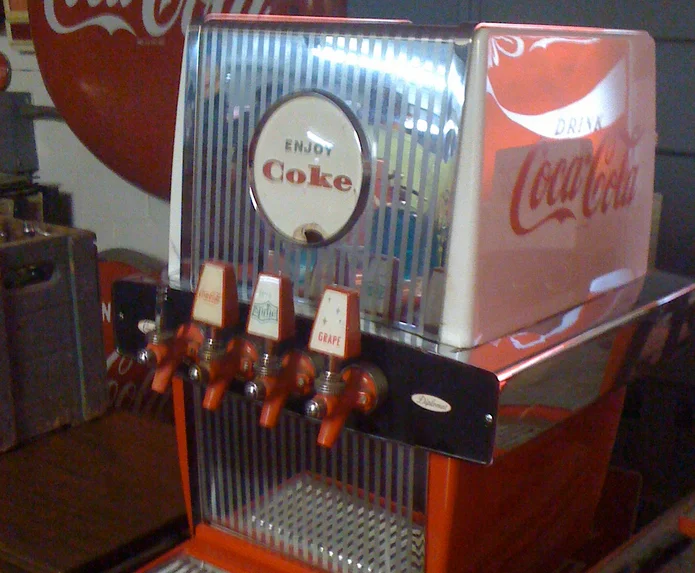
The local drugstore or five-and-dime counter was once the social hub where teenagers could earn tips while serving up ice cream sodas, malts, and egg creams to their peers. Young soda jerks (as they were affectionately known) mastered the art of measuring syrups, operating carbonation dispensers, and creating picture-perfect sundaes that defined American youth culture. The position demanded cleanliness, efficiency, and the social skills to banter with customers while keeping orders straight during busy weekend rushes.
These jobs offered teenagers a front-row seat to community life, from first dates to after-school gatherings, while learning customer service fundamentals that would serve them throughout their careers. Many former soda fountain workers can still recite specialty recipes from memory and recall the satisfying swoosh of seltzer water hitting flavored syrup to create the perfect fizz. The soda counter represented a microcosm of society where young workers observed human nature while perfecting the art of the upsell—”Would you like whipped cream and a cherry on that?”
9. TV/Radio Repair Helper
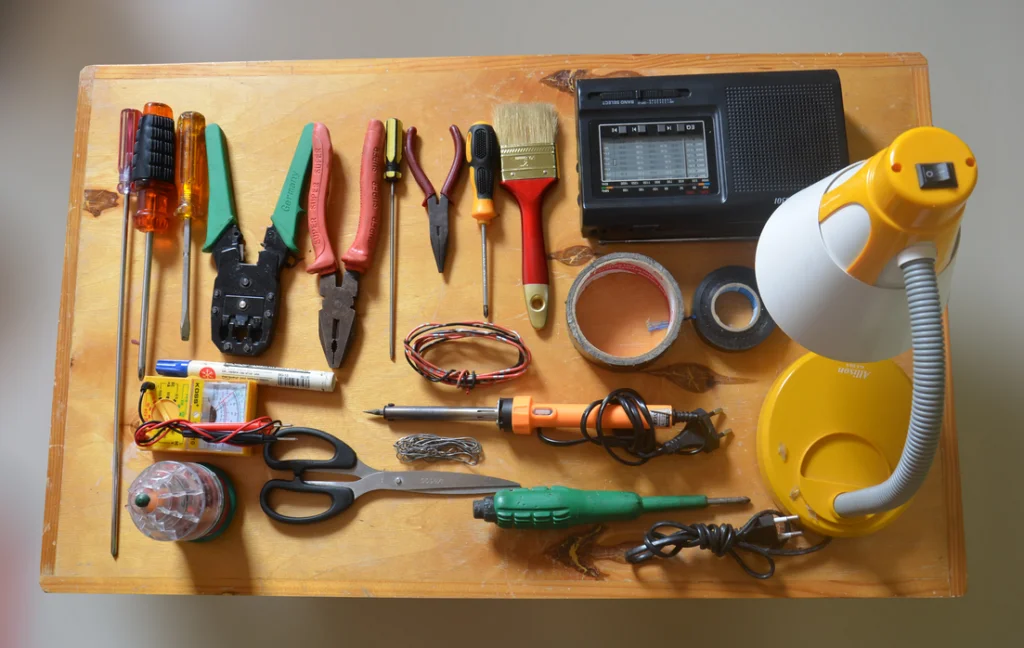
When televisions and radios were significant household investments, teenagers with technical aptitude could apprentice with repair professionals, learning to diagnose and fix electronic problems in people’s homes. These young assistants carried tools, tested tubes, and gradually developed the skills to identify common issues in devices that were built to be repaired rather than replaced. The position offered hands-on experience with electronics that school courses couldn’t provide, creating pathways to careers in engineering and technology.
Repair helpers entered homes throughout their communities, observing different lifestyles while providing an essential service that families genuinely appreciated. The mentorship aspect of these jobs created meaningful relationships between experienced technicians and their young assistants, with knowledge passed down through demonstration and guided practice rather than manuals or videos. Many successful electronics professionals trace their careers back to those formative experiences replacing vacuum tubes and adjusting antennas, skills that evolved as technology changed throughout their working lives.
10. Ice Delivery Assistant
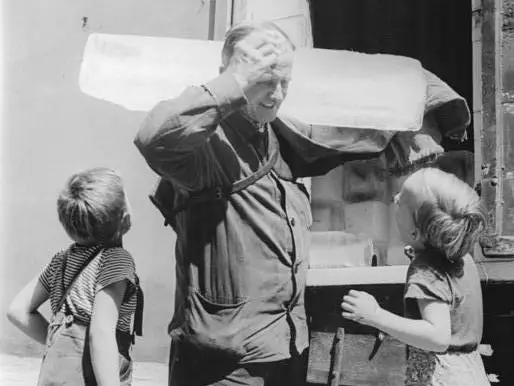
Before electrical refrigeration became universal, teenagers would help deliver large blocks of ice to homes and businesses for use in iceboxes. These strapping young workers would use special tongs to carry heavy ice blocks from insulated trucks to customers’ kitchens, developing impressive strength and endurance during the busiest summer months. The job taught route efficiency, customer relations, and the importance of speed when dealing with a literally melting product.
Ice delivery assistants became familiar faces in their communities, often receiving cookies or lemonade from grateful customers during hot weather deliveries. The position required careful attention to delivery schedules, as customers depended on regular ice replenishment to keep food from spoiling during summer heat waves. Former ice delivery workers often share stories about navigating narrow staircases with slippery 50-pound blocks, the satisfying chip-chop of ice picks, and the blast of cold air that provided momentary relief when entering the ice company’s storage facility.
11. Elevator Operator
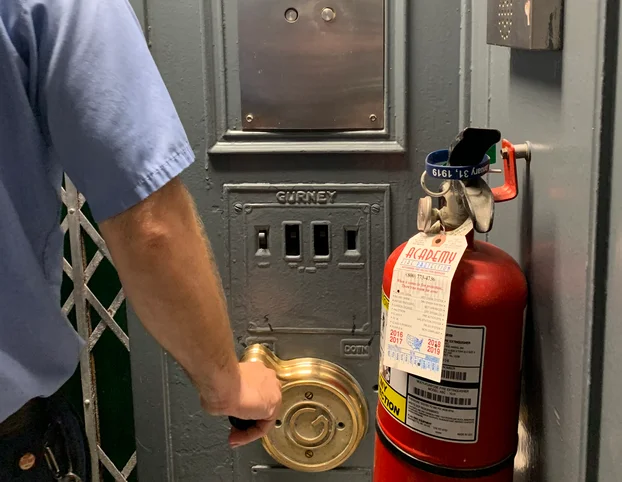
Multi-story department stores and office buildings once employed smartly dressed teenagers to operate manual elevators, announcing floors and controlling the speed and stops with skilled precision. Young operators memorized building directories, learned to level the elevator car perfectly with each floor, and provided a touch of hospitality that made vertical transportation a pleasant experience rather than a utilitarian necessity. The position required excellent spatial awareness, a calm demeanor during busy periods, and the ability to maintain cheerful professionalism throughout repetitive workdays.
These front-facing roles often served as entry points into retail or corporate environments, with operators observing workplace dynamics and developing connections that could lead to advancement. Former elevator operators recall the satisfaction of smoothly operated controls, the snippets of conversation from diverse passengers, and the rhythm of up-and-down cycles that structured their workdays. Many developed an uncanny sense of timing and weight distribution that allowed them to predict exactly how many passengers could safely board before reaching capacity.
12. Newspaper Delivery Route Manager

Before digital subscriptions and online news, ambitious teenagers could progress from paper carriers to route managers, overseeing teams of younger kids while handling customer service and payments. These young supervisors learned management skills early, balancing the needs of subscribers against the capabilities of their delivery teams while troubleshooting missed deliveries and weather-related complications. The position came with significant responsibility, as managers handled subscription money and maintained delivery quality that kept the presses running.
Route managers typically used bicycles or family cars to distribute bundles of papers to carriers, check problem areas, and train new delivery kids on efficient folding and throwing techniques. The early morning hours required dedication and self-discipline that impressed college admissions officers and future employers alike. Former route managers often credit these positions with developing their work ethic, problem-solving abilities, and understanding of basic business operations—collecting payments, managing personnel, and ensuring customer satisfaction before most adults had their first cup of coffee.
Summer jobs have certainly changed with the times, but the lessons they taught remain timeless—responsibility, work ethic, and the satisfaction of earning your own money. While today’s teens might not know the joy of organizing VHS tapes or the camaraderie of a drive-in theater crew, they’re finding their own paths to adulthood through whatever opportunities exist in our digital age. Perhaps someday they’ll write nostalgic articles about those summer jobs that future generations will never experience.

